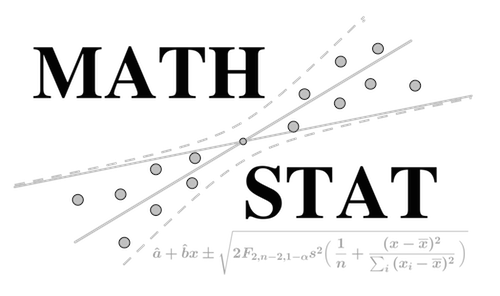Johannes Krebs

until Sept. 2021:
Juniorprofessor for Mathematical Statistics
Heidelberg University, Institute for Applied Mathematics
Im Neuenheimer Feld 205, 69120 Heidelberg, Germany
since Oct. 2021:
Professor for Mathematic - Statistics
Katholische Universität Eichstätt-Ingolstadt
Ostenstraße 26
Kollegiengebäude | Bau B 109
85072 Eichstätt, Germany
Phone: +49 (0) 8421 93-21782
E-mail: johannes.krebs@ku.de
Research interests
2021-present: Research grant of the Deutsche Forschungsgemeinschaft Advances in Topological Data Analysis, KR 4977/2-1.
2017-2020: Research grant of the Deutsche Forschungsgemeinschaft Dynamic Objects on Random Fields, KR 4977/1-1.
Education
Ph.D. in Mathematics, TU Kaiserslautern, 2014-2017.
M.Sc. in Mathematics, TU Kaiserslautern, 2011-2013.
B.Sc. in Mathematics, TU Kaiserslautern, 2009-2011.
B.Sc. in Economics, Mannheim University, 2006-2009.
Professional experience
DFG Research Fellow, Institut de statistique, biostatistique et sciences actuarielles, Université Catholique de Louvain, 2020.
Professorship substitution (at associate professor level) TU Braunschweig, Institute of Mathematical Stochastics, 2019-2020.
Professorship substitution (at associate professor level) Ruprecht-Karls-Universität Heidelberg, Institute of Applied Mathematics, 2019.
DFG Research Fellow, University of California, Davis, 2017-2019.
Postdoctoral Researcher TU Kaiserslautern, Department of Mathematics, 2017.
Preprints
B. Roycraft, J. Krebs and W. Polonik (2021) Bootstrapping persistent Betti numbers and other stabilizing statistics. http://arxiv.org/abs/2005.01417, submitted.
J. Krebs, B. Roycraft and W. Polonik (2020) On approximation theorems for the Euler characteristic with applications to the bootstrap. http://arxiv.org/abs/2005.07557, in revision.
J. Krebs and W. Polonik (2019) On the asymptotic normality of persistent Betti numbers. http://arxiv.org/abs/1903.03280, in revision.
J. Krebs and J. Franke (2019) The autoregression bootstrap for kernel estimates of smooth nonlinear functional time series. http://arxiv.org/abs/1811.06172.
E. Valenzuela-Domínguez, J. Krebs and J. Franke (2019) A Bernstein inequality for spatial lattice processes. http://arxiv.org/abs/1702.02023.
Publications
J. Krebs (2021) On limit theorems for persistent Betti numbers from dependent data. Stochastic processes and their Applications, forthcoming.
J. Krebs and C. Hirsch (2021) Functional central limit theorems for persistent Betti numbers on cylindrical networks. Scandinavian Journal of Statistics, forthcoming.
J. Krebs (2021) A note on exponential inequalities in Hilbert spaces for spatial processes with applications to the functional kernel regression model J. Stat. Theory Pract., forthcoming.
J. Krebs (2020) On the law of the iterated logarithm and strong invariance principles in stochastic geometry. Bernoulli, forthcoming.
C. Baumgart, J. Krebs, R. Lempertseder and O. Pfaffel (2019) Quantifying life insurance risk using least-squares Monte Carlo. Der Aktuar, 2, 71--79.
J. Krebs (2019) The bootstrap in kernel regression for stationary ergodic data when both response and predictor are functions. Journal of Multivariate Analysis, 173, 620--639.
J. Krebs (2018) Non-parametric regression for spatially dependent data with wavelets. Statistics, 52, 1270--1308.
J. Krebs (2018) Nonparametric density estimation for spatial data with wavelets. Journal of Multivariate Analysis, 166, 300--319.
J. Krebs (2018) A Large Deviation Inequality for beta-mixing Time Series and its Applications to the Functional Kernel Regression Model. Statistics and Probability Letters, 133, 50--58.
J. Krebs (2018) Orthogonal series estimates on strong spatial mixing data. Journal of Statistical Planning and Inference, 193, 15--41.
J. Krebs (2017) A Bernstein inequality for exponentially growing graphs. Communications in Statistics -- Theory and Methods, 47, 5097--5106.
J. Krebs (2017) Consistency and asymptotic normality of stochastic Euler schemes for ordinary differential equations. Statistics and Probability Letters, 125, 1--8.




